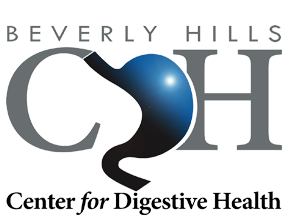What Is an Endoscopy?
BOOK APPOINTMENTBeverly Hills Center for Digestive Health would like to shed some light on the endoscopy process and inform our patients of the ways we utilize this innovative procedure.
Why Would I Need an Endoscopy?
We generally use endoscopy to examine an organ visually, to better understand what is going on inside of a patient. We’ll often utilize this procedure to evaluate the underlying cause of:
- Bloody stool and bleeding of the digestive tract
- Stomach pains of varying degrees
- Ulcers and gastritis
- Difficulty swallowing
- Growths in the colon or polyps
- Significant changes in bowel habits and movements (diarrhea or chronic constipation)
Types of Endoscopy
There are many different types of endoscopies, so many that we should probably just write an entire blog about that. We’ll keep it narrowed down to how we use this tool to serve our patients.
- A colonoscopy will examine the colon and is inserted through the anus.
- A cystoscopy examines the bladder, in which case the scope is inserted through the urethra.
- An upper gastrointestinal endoscopy examines the esophagus, as well as the upper intestinal tract. In this case the scope will be inserted through the mouth.
- An enteroscopy examines the small intestine. The scope can either be inserted through the anus or the mouth.
A Closer Look at the Endoscope Process
We insert the endoscope through a tiny cut, or even an opening such as the mouth. The endoscope tube itself is flexible and malleable for ease of use and internal maneuverability. It may be necessary to use forceps, tongs, or scissors to perform an operation or remove tissue for a biopsy.
The lighted endoscope camera allows a doctor to view internal problems without a having to incorporate a large surgical incision. We can see everything the scope sees on a monitor in the operating room.
The benefits of the endoscopy are many, including lower risk of infection or bleeding, especially when compared to open surgery. After the procedure we’ll close the small incisions, bandaging them immediately. You’ll be able to go home the same day, because the endoscopy is categorized as an outpatient procedure.
Would you like to know more? Do you think you could benefit from an endoscopy? As we advance in age, it’s important to know what’s going on inside of our bodies, especially the digestive tract. That’s where we come in. Contact Beverly Hills Center for Digestive Health to schedule your consultation. You’ll be happy you did.
Our Blogs
Accurate Diagnostics for Anorectal Strength and Function
Back to BlogsAre you having problems producing healthy bowel movements? The problem may be the muscles around your digestive tract either not coordinating properly or lacking strength. To get your GI problems addressed as soon as possible, visit the Beverly Hills...
Pelvic Floor Dysfunction?
Back to BlogsPelvic floor dysfunction is the inability to relax and coordinate your pelvic floor muscles to allow for smooth defecation. Fortunately, there are treatments available, including biofeedback, medications, and physical therapy. Reclaim strength and comfort...
Cutting-Edge, Compassionate Care Can Help You Find Hemorrhoids Relief
Back to BlogsHemorrhoids can be debilitating and painful, but treatment is available. If you’re suffering from hemorrhoids, make an appointment at the Beverly Hills Center for Digestive Health. We offer cutting-edge, compassionate care to help you find hemorrhoids...
Call to Schedule
Our office is available to answer your questions and evaluate your symptoms.

Phone
(310) 855-0222
Fax: (949) 404-6467
Hours
Mon - Fri: 9am – 5pm
Sat - Sun: Closed